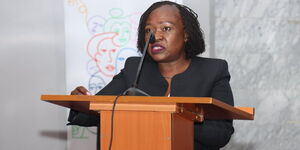On February 26, Kenyan activist James Njonjo Mue announced a planned prayer meeting at Uhuru Park scheduled for Thursday, February 27 afternoon.
In a statement shared widely on Twitter, Njonjo Mue stated that the aim of the prayers would be to oust President Uhuru Kenyatta.
He highlighted failures of the current regime and asked Kenyans to pray, for God to remove him from power.
He termed President Kenyatta as a threat to current and future generations.
"Uhuru and the government that he leads have become an existential threat to our country and our children," read part of the statement.
In the announcement, he claimed that the president has financial muscle, power and seemed to be above the law.
"He is above the law and our courts but there is one 'Court' where all our voices are heard and our individual evidence cannot be destroyed by any means," the activist wrote.
The activist concluded his statement by referencing the book of Matthew 18:20; "For where two or three gather in my name, there am I with them."
Born in Thika, Mue captured the attention of the media in 1997 when he joined activists at Uhuru Park to demand a new constitution ahead of the elections.
Mue was part of the group that coined the ‘No Reforms, No Elections' phrase in 1997, when opposition MPs decided to side with the late President Daniel Moi and agreed to carry out minimum reforms, against the wishes of civil society groups which were pushing for an overhaul of the Constitution.
The ‘A’ student who attended Alliance High School studied law at the University of Nairobi and later at Oxford University, where he was a Rhodes Scholar and focused on civil law.
Njonjo Mue is also a trained theologian. As a master's student, he wrote his thesis on the topic “Forgiveness in Politics: Reflections on Truth, Justice and Reconciliation in Kenya."












